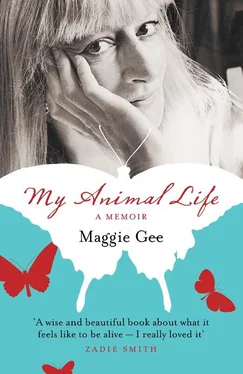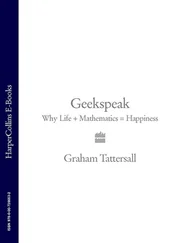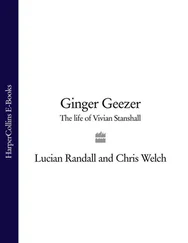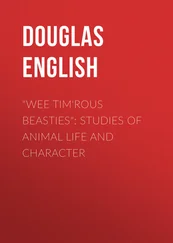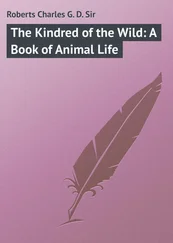
Mum explaining the world to me. She said, ‘I grew up in the woods and fields. Scatter me in the woods and fields.’
On the station platform at Sheringham, seeing me off on an autumnal evening after the happy month we had spent together, a wintry chill in the air but the sky midnight blue and drenched with small bright stars, Mum held my hand in the dark. Our living hands, flesh over the bone. There weren’t many passengers. The train was late. She said, ‘I feel fine, let’s wish for a couple of years. Three. Five.’ ‘Yes,’ I said fervently. ‘I’m wishing.’ ‘How about seven?’ she said. ‘Seven,’ I agreed, clutching at her living hand, but the night felt cold, and inside me some voice was saying, ‘Not seven’, and the train for Norwich shunted into the station.
Three weeks after I went back to London, by a random side-blow of fate, perhaps through overworking on the novel in our first house, where the new central heating wasn’t yet installed, I was in hospital with pneumonia, taken in as an emergency with a sky-high temperature and put on intravenous antibiotics while I lay there seeing visions of crystalline architecture that are, it seems, a side-effect of brain chemistry in fever. Coming out weak and thin, I had been home only a few days when I got the phone call from my mother. She had always asked for so little, but now she was urgent and direct, as only once before, when my father was dying. ‘Margaret, please come. Will you come?’
Mum had woken up to find she had turned yellow, and was very afraid. She had arranged an appointment with the doctor, knowing that if this was jaundice, it probably came from her liver. After that call I went to Norfolk, and did not leave her.
Next day Mum’s face was more yellow than before. We visited the surgery together. The doctor, who knew her history, looked stricken, but agreed there was more than one possible explanation. We begged for some that weren’t cancer, and he gave them, but in his eyes we could see he did not believe them. ‘Have you been losing weight?’ he asked my mother. ‘No,’ she said. And then, ‘Only a few pounds.’ He was nodding his head. That was what he expected.
We went into the Norwich hospital, and they ran tests. We had prayed it was a random infection: there was no infection. As the results came in, the news grew steadily worse. We kept hoping, but every day there was less to hope for. Concentrated, hope became fiercer and more desperate, but began to be tinged with leaden despair. Mum had hoped for seven years; soon we hoped for months. And then for weeks, and then only days. At last there was nothing left to hope for, not even our desperate plan to get her out to spend a last Christmas with us in London. A last-ditch operation was too painful to endure; I suppose she was too ill for them to use general anaesthetic. They had to stop, in mid-session, trying to introduce a stent which would have helped her liver manage for a few more weeks. She was brought back to the ward, dark with pain.
In her remaining days, she wrote kind, bright letters, in her normal firm and impeccable hand, some to people who’d been too afraid to come to see her once they knew that she was dying. The family arrived, and sat around the bed, and my mother managed to laugh with them. My brothers came, and Mum’s beloved grandchildren. Mum’s ability to enjoy herself, anywhere, at any time, bubbled up, miraculous. She let my daughter feed her grapes. As she floated away, in the end, on morphine, time circled back to its beginning, to that graveyard opposite the tiny house in London Road, Stony Stratford, where she grew up with all those brothers and sisters, and she saw the ‘women in long white dresses’ she remembered from the years after the First World War, and her own mother, May, gentle mouth and dreamy eyes, the person of whom she remembered only kindness; and she said the phrase I can never forget, ‘There’s someone waiting for me at home who’s good as gold, good as gold.’ I sat by her bedside, by then on my own, on that long last night, stroking her hand. For her it was a comfort, going home, but in retrospect it made me afraid, since I never, for myself, want to go back home, if home means the family I grew up in.
‘You’re my rock,’ she said, not long before she died. But she had to say goodbye to me.
Neither of us thought this was possible. We had loved each other dearly, deeply, always. When she was in her seventies, and I in my forties, we would walk along the village road hand in hand. She had put up with all my adolescent hatred, my tangled love life, my absurdities. She knew me through and through, and loved me, though she half-pitied Nick, I think, for marrying me, because she knew I could be difficult. Yet we were the women in the family. We were the deepest and most intimate friends. We looked into each other’s eyes and saw everything, always. How could death part us? ‘I’ll wait for you,’ she said to me. ‘You’ll come, won’t you, before too long.’ ‘Not yet …’ I drew back a little, afraid.
And then she said the thing that still haunts me with mingled grief and happiness. ‘If I get there, I’ll let you know. If I get there, I’ll wait for you.’
Is she waiting, somewhere? Where do they go?
How long will it be before the call comes?
The stars leave the stage, one by one. The aunts, the uncles, the fixed points of childhood.
Mum was right, of course. There’s not long to wait between the deaths of child and parent, not long sub specie aeternitatis . Logically, the length of a generation. You can work it out, a macabre kind of maths. If I die at the age my mother was, I have to add on her age when I was born — thirty-three — to the date of her death. Which would see me joining her, or setting off to find her, in 2025, fifteen years hence. It doesn’t seem very far away. I hope for more, am afraid of less.
I missed my mother, and grieved for her, for all the things she had dreamed of doing. I do them partly for her, now. I think how pleased she’d be to see me travelling, and fly with her flight bag, unglamorous but practical, an indestructible black-and-red ‘Samsonite’ shoulder bag that makes me feel she’s coming with me. She’s come with me to Africa, Australasia.
1992 was the year I grew up, if grief is what makes you grow up. Both my parents died in the same year. I was forty-three for one, forty-four for the other: old enough to bear it, at least. Children have to lose their parents, it’s natural, though it feels like a violation, at the time. The other way round is even harder. I had a miscarriage that year, as well.
Where do they go? Unborn children. They are wanted and expected, but never come.
And those who have lived solidly here on earth, who were part of our lives, who should always be there — Peg, Gwynneth, Aileen. Vic and Tennant. Aunty Eve and Aunty Bertha. Lloyd and Hilda and the grandparents. My brilliant young commissioning editor from the 1990s, Jonathan Warner, who tried too hard to make everything perfect. Dear Christine Casley, with her dreamily amused, husky voice and blue eyes and elegant, youthful bob, my editor for The Ice People and The White Family and The Flood , who I stupidly expected to be there for ever, like a sharpened reflection of my consciousness as, deeply attuned, she shaped and sifted; with her youthful gift of pleasure in everything — flowers, pictures, the lunches we shared; but she died in months of a brain tumour. And Beverly Hayne, my almost-cousin, so funny and stroppy and sharp and bright, and fine-grained, melancholy Kitty Mrosovsky, who died because she had the wrong boyfriend, and Nina, after a long struggle with lupus started by a random shard of glass on a beach. Four beautiful, distinctive voices I can hear still, plaiting together as they stretch away from me into nothingness, almost gone, and I strain after them, missing them. The living who die, and the never-arrived. The mystery is, where do they go?
Читать дальше
